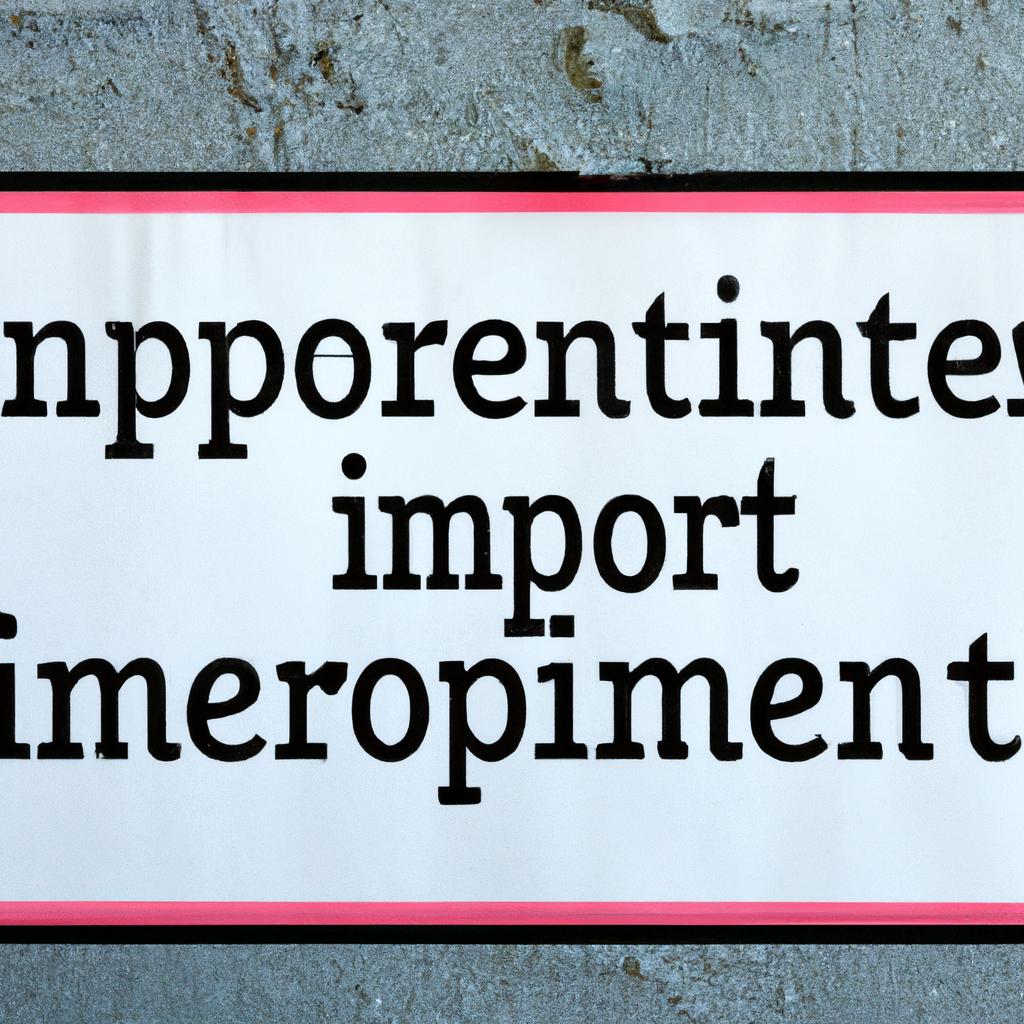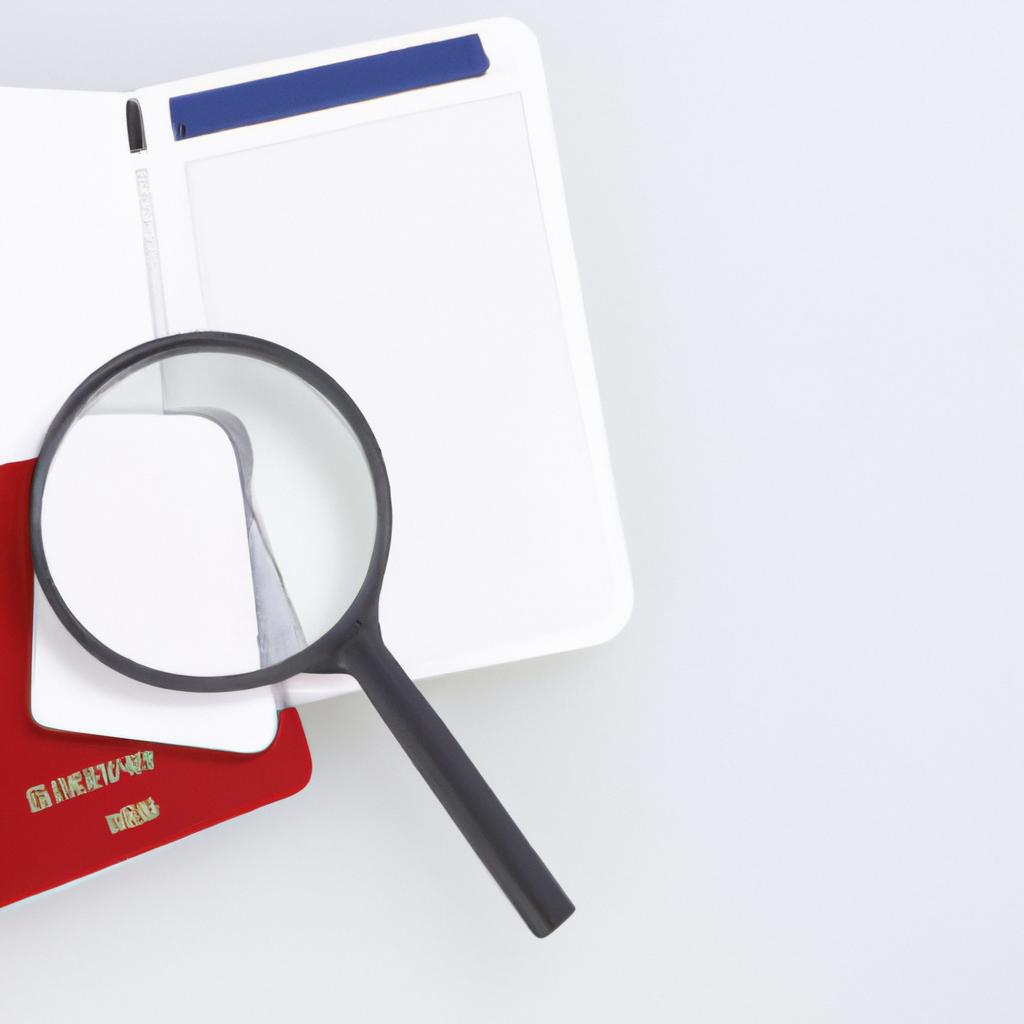Navigating Customs: A Guide to Import Restrictions and Duty-Free Allowances
In a world where borders are becoming increasingly fluid, the thrill of international travel often collides with the intricate web of customs regulations. Whether you’re a seasoned globetrotter or planning your first overseas adventure, understanding the nuances of import restrictions and duty-free allowances is essential. These regulations dictate not only what can cross the threshold of your home country but also how much you can bring along without incurring extra costs. From the allure of exotic spices to the latest tech gadgets, every item carries its own set of rules. In this guide, we will unravel the complexities of customs procedures, providing you with the knowledge needed to navigate these waters with confidence and ease. So, before you pack that suitcase, let’s explore the ins and outs of traveling smartly and responsibly across international borders.

Understanding Import Restrictions: Key Regulations and Compliance Tips
Import restrictions vary widely from country to country, often reflecting a nation’s economic policies, health and safety regulations, and environmental considerations. **Understanding these restrictions is critical** for businesses and travelers alike to avoid potential legal pitfalls. Key regulations frequently include import licenses, quota systems, and prohibited items. Import licenses are permissions granted by governmental bodies to allow individuals or businesses to bring specific goods into a country. Quota systems limit the quantities of certain products that can be imported, ensuring local industries remain protected. Prohibited items typically include hazardous materials, outdated technology, and counterfeit goods, and violating these rules can result in hefty fines and confiscation of goods.
To navigate this labyrinth effectively and ensure compliance, consider these essential tips: Stay informed about the latest regulations in both the exporting and importing countries; consult customs experts or hire a customs broker to help interpret complex rules; and, keep thorough documentation of all transactions, including invoices and shipping manifests. Additionally, familiarizing yourself with duty-free allowances can provide significant savings, as they outline the maximum quantities of certain products you can bring into a country without incurring import duties. Below is a simple table illustrating common duty-free allowances for travelers:
| Country | Alcohol (liters) | Tobacco (cigarettes) | Gifts (value) |
|---|---|---|---|
| USA | 1 | 200 | $800 |
| UK | 1 | 200 | £390 |
| Canada | 1.14 | 200 | $60 |

Maximizing Duty-Free Allowances: Strategies for Savvy Travelers
When traveling internationally, understanding and maximizing your **duty-free allowances** can transform your shopping experience. To ensure you take full advantage of these benefits, start by researching the specific regulations of both your departure and destination countries. Each nation has unique restrictions on the value and types of goods you can bring back without incurring customs duties. Familiarize yourself with the limits on items such as **alcohol, tobacco,** and **gifts**, as these often carry stricter guidelines. Additionally, it helps to create a checklist of items you plan to purchase or bring home, making it easier to keep track of your allowances and avoid surprises at customs.
To further enhance your duty-free knowledge, consider implementing a few strategic habits. Document your purchases and their prices, which can help in case you need to declare items exceeding your allowance. Use your wallet wisely by dividing personal purchases into different bags or categories. Trust your instincts—if it seems like too much, it probably is! Below is a simple table that showcases some common duty-free allowance limits in popular travel destinations, ensuring you stay informed during your journey.
| Destination | Alcohol Allowance | Tobacco Allowance | Gift Allowance |
|---|---|---|---|
| United States | 1 liter | 200 cigarettes | $800 |
| United Kingdom | 1 liter over 22% ABV / 2 liters under 22% ABV | 200 cigarettes | £390 |
| Canada | 1.14 liters (40 oz) | 200 cigarettes | $60 CAD |
Adopting these strategies not only streamlines your travel experience but also ensures compliance with customs regulations. Stay informed about your rights as a traveler and engage with local authorities if in doubt. Happy travels!

Essential Resources for Navigating Customs: Tools and Contacts You Need
To facilitate a smooth customs experience, having access to the right tools and contacts is indispensable. Start with online resources that provide real-time updates on import regulations and duty-free allowances. Consider bookmarking these essential platforms:
- Customs and Border Protection (CBP): A comprehensive source for U.S. import regulations.
- World Customs Organization (WCO): Offering an international perspective on customs best practices.
- Trade.gov: A repository of resources for U.S. exporters, including links to state-specific contacts.
- Local Customs Offices: Direct contact for tailored advice related to specific regions or products.
Engaging with these tools is only half the battle; establishing a network of contacts can also significantly ease your customs journey. Consider reaching out to:
- Customs Brokers: Professionals who specialize in navigating the regulations on your behalf.
- Freight Forwarders: Experts in logistics that can help you manage shipping and customs documentation.
- Legal Advisors: Specialists in trade law who can clarify complex regulations.
Here is a quick reference table to summarize the contact types and their roles:
| Contact Type | Role |
|---|---|
| Customs Broker | Navigates regulations and paperwork |
| Freight Forwarder | Manages shipments and logistics |
| Legal Advisor | Provides counsel on trade compliance |
Closing Remarks
As we close this comprehensive guide on navigating customs, it’s essential to remember that while the intricacies of import restrictions and duty-free allowances may seem daunting at first glance, knowledge is your most powerful ally. By familiarizing yourself with regulations and understanding the specifics of permitted items, you’ll not only ensure a smoother passage through customs but also empower yourself to make informed decisions when shopping abroad.
Whether you’re a seasoned traveler, a budding entrepreneur, or simply an enthusiast of global goods, approaching customs with confidence transforms hurdles into opportunities. So, as you embark on your next journey—be it for business or pleasure—carry with you the insights shared in this guide, and savor the joy of exploring new horizons without the weight of unexpected surprises. Safe travels and happy importing!
